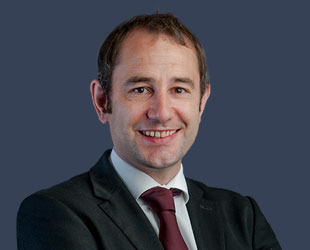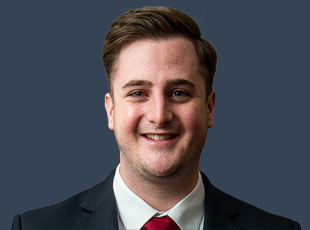- Swansea (Main)01792 773 773
- Caerphilly02920 860 628
- Cardiff02920 225 472
- Carmarthen01267 234 022
- Cowbridge01446 771 742
- Haverfordwest01437 764 723
- Rural Practice01267 266 944
- St Davids01348873671
- Please note that all phone calls are recorded
Cancer Medical Negligence Claims
Being given the news that you or a loved one has cancer is a difficult and overwhelming time. Finding out that the cancer has been misdiagnosed previously and that there has been a delay in diagnosis can increase what is already considerable anxiety.
Diagnosis of cancer is often not straightforward and there are many opportunities for cancer to be misdiagnosed or missed completely. This often results in a late diagnosis of cancer and delay in treatment.
It is crucial that cancer is diagnosed at the earliest stage possible in order to provide the greatest opportunity for cure. When a patient is diagnosed with cancer it is vital that they are treated quickly and correctly. Delay in cancer diagnosis can be catastrophic.
What is cancer misdiagnosis?
Misdiagnosis of cancer occurs when a doctor or other medical professional makes the wrong cancer diagnosis. This could mean that they diagnose cancer symptoms as another condition or they may miss the symptoms entirely.
Cancer misdiagnosis is extremely serious as it often means that there has been a late diagnosis of cancer and that there has been a delay in proper and potentially life-saving treatment.
Contact our specialist team
It is important that an experienced team of medical negligence solicitors investigate the potential claim and consider whether there has been any loss suffered. Advice is needed in terms of what help is available in recovering financial sums to assist with care, loss of earnings either on behalf of the person in question or by their dependents.
Get in touch here, speak with our Live Chat team or contact one of our medical negligence specialists in South and West Wales below:-
The practitioners at JCP are very experienced.
Legal 500 2023
-
- Nick O'Neill
- Director - Medical Negligence
-
- Matthew Owen
- Director & Head of Medical Negligence
-
- Lauren Protheroe
- Director - Medical Negligence
-
- Thomas Rees
- Director - Medical Negligence
-
- Keith Thomas
- Director & Head of Birth Injury
-
- Samuel Barnes
- Associate Solicitor - Medical Negligence
-
- Marnie Novis
- Associate Solicitor - Medical Negligence
-
- Alison Deere
- Legal Assistant - Clinical Negligence
-
- Ellie Sayce
- Legal Assistant - Medical Negligence
-
- Cheryl Smith
- Legal Secretary - Personal Injury
Cancer misdiagnosis and delay – the figures
- 1 in 2 people born after 1960 will get cancer at some point in their life
- 1 in 3 people will die from that cancer
- 367,000 approx. new cancer cases in the UK every year
- Every 2 minutes someone in the UK is diagnosed with cancer
- Between 20% – 40% of cancers in the UK are misdiagnosed at least once before the disease is identified
- Around 20% of UK cancer patients advised they waited over 6 months before the correct diagnosis was given
- 22% of cancers last year only picked up following A&E attendance
The most common cancers in the UK are:
- Breast
- Prostate
- Lung
- Colorectal
Why does the misdiagnosis of cancer occur?
There are many different types of cancer. Cancer symptoms often resemble a number of other conditions and some are more difficult to spot. This means that medical professionals can and do get it wrong.
There are a number of reasons why the misdiagnosis of cancer occurs. These include but are not limited to:
- Cancer symptoms can often be the same as a variety of other illnesses that are far less serious
- Pathology errors – those interpreting blood and tissue samples
- GP delay in referral to a specialist for investigation
- Failure to identify a patient’s symptoms
- Increase in administrative failure ‐ cancelled appointment/tests/process failures
- Lack of continuity of clinical teams/clinical care
- Failure of responsibility e.g. MDT meeting
- IT failures
- X‐rays not routinely reported back to GP
- X-ray and CT scans being interpreted incorrectly
What counts as negligent treatment?
In considering whether treatment has been negligent, the treatment in question must have fallen below a reasonable standard. This standard will be judged in accordance with a responsible body of medical practitioners skilled in the relevant field of medicine.
The standard to be applied depends on the point at which negligence occurred. For example, a failure to report cancer on a CT scan would be judged in accordance with a responsible body of radiologists. The failure by a GP to make a referral for further investigation would be judged against the standard of a responsible body of GPs.
What should I do if my cancer has been misdiagnosed?
Whatever the reason, if a medical professional has failed to diagnose cancer within a reasonable timeframe and has provided a level of care that can be considered below a reasonable standard of a responsible body of medical professionals in that area, then they could be guilty of medical negligence.
It is important that an experienced team of medical negligence solicitors investigate the potential claim and consider whether there has been any loss suffered. Advice is needed in terms of what help is available in recovering financial sums to assist with care, loss of earnings either on behalf of the person in question or by their dependents.
None of the above, however, should take priority over getting the necessary treatment as soon as possible. It is important that you focus on receiving the treatment required and allow an experienced team of cancer misdiagnosis solicitors to take the stress of pursuing a cancer claim for medical negligence away from you.
How much should I expect for cancer compensation claims?
Every cancer misdiagnosis compensation claim is different. The amount of compensation available depends on the extent of the injury and effect of negligent treatment.
Broadly, claims can be made for the following:
- General damages - pain and suffering
- Loss of earnings and future earning capacity
- Costs of home help, equipment, childcare or care
- Loss of income for family/child dependency payments
- The cost of transport to and from a hospital or medical appointments
- Adaptations to your home and any specialist equipment you need
- Future treatment costs
- Funeral costs
- Bereavement damages
The amount of compensation available will be reflective of the seriousness of the consequences of the misdiagnosis. The more significant the impact on an individuals’ health, earning capacity, family, life expectancy and quality of life, the greater the award that will be available.
What is the time limit to claim for cancer misdiagnosis medical negligence?
In most cases, a claimant has three years from the date of the injury or from the date that they could reasonably have been aware that misdiagnosis has occurred.
There are however exceptions. For claims relating to a child, the three-year time limit does not begin until the child turns 18 years old.
Those who lack mental capacity are not subject to the three-year limitation for the time which they are suffering the mental incapacity. The time limit will run when capacity is recovered.
We strongly recommend starting your claim at the earliest opportunity to ensure that there is sufficient time to conduct a thorough investigation.
Can a cancer claim be made after death?
If a misdiagnosis or delay in diagnosis of cancer results in the illness becoming terminal, then the right to bring the claim will continue on behalf of a person’s estate and the time limit to bring that claim runs from three years after the date of death.
A cancer claim is often initially brought by the person who has suffered the delay in diagnosis themselves and is then continued by their family following their passing.
How JCP Solicitors can help
At JCP Solicitors, we have specialist knowledge regarding claims for the misdiagnosis and late diagnosis of cancer. We offer practical, sympathetic advice about the merits of your case and will handle every aspect of your medical negligence compensation claim on your behalf. From the initial application to sourcing any scans or medical records, to negotiating a settlement, to representing you at any hearings; we will be by your side every step of the way.
Wherever possible, we will use our expert negotiation skills to help you settle the matter amicably out of court, avoiding the potentially distressing process of going through a trial. However, if it becomes necessary to go to court in order to fight for your compensation, we will use all our knowledge and experience to robustly present your position, giving you the best possible chances of the court deciding in your favour.
We support local people across the whole of South, East, and West Wales including Swansea, Cardiff, Carmarthenshire, The Vale of Glamorgan, Pembrokeshire, and Rhondda Cynon Taff.
If you’ve suffered an injury as a result of a delay in diagnosis or misdiagnosis cancer because a doctor or medical professional failed to diagnose you or refer you for treatment, delayed your diagnosis, or committed an act or omission which caused or contributed to the condition, our highly experienced cancer claims solicitors are on hand to help you claim medical negligence compensation.
Get in touch with our stroke claims solicitors today by calling your local branch, emailing law@jcpsolicitors.co.uk, or by filling in the simple enquiry form to the right of the page.
How do No Win No Fee cancer claims work?
Conditional Fee Agreements often referred to as ‘No Win, No Fee’ agreements, are a way to fund compensation claims without the risk of ending up out of pocket.
The way a No Win No Fee claim works is, we accept your case and do not charge you any legal fees for the time we spend working on it. If you win your case, we will seek to recover the costs of our work from the Defendant (the person or organisation you’re suing), with a percentage deducted from a limited part of any damages you are awarded. This percentage is a specific amount set by law and we will discuss how much this is likely to be at your initial appointment.
If medical experts are required to provide evidence in your stroke case, they cannot work on a No Win No Fee basis as we do, as they must remain independent. You may also incur separate costs, for example, to obtain medical records or to pay court fees, which need to be paid at once.
We understand that you may be worried about finances during this challenging time, particularly if you cannot work due to your injury. Therefore, we can offer you a funding facility to help cover any additional costs while your claim progresses.
At the end of the claim, if you are successful, it is likely the Defendant will pay these costs. In case your claim is unsuccessful, you will be covered by an insurance policy which protects you from any adverse risk.
At no point will we request any money from you.
Legal Expenses Insurance
Sometimes insurance policies that you may already hold (such as a home and contents insurance policy or a motor insurance policy etc.) will provide cover for a medical negligence claim.
It is important to check any policy documents carefully to see if you are covered. There are sometimes time limits on reporting a case to your insurers, and so if you think you may have a claim then you should also consider whether you have any pre-existing insurance at an early opportunity.
If you think you may have pre-existing insurance, we can check your documents or contact your insurers to see if you are covered.
No Win No Fee Agreement
These are also sometimes referred to as ‘Conditional Fee Agreements’. A No Win No Fee Agreement means that, if your case is unsuccessful, we will not charge you for the time we have spent working on it. If, on the other hand, your case is successful then we will seek to reclaim our costs for the work we have done from the Defendant, with a percentage deduction from a limited part of any damages that you are awarded (this deduction is subject to a set limit which will be discussed with you at the outset).
It is important to note that, where medical experts are instructed in a case, they are not allowed to work on a No Win No Fee basis in order to preserve their impartiality. Their fees (and any other fees incurred as the case progresses, such as fees for obtaining medical records and court fees) therefore need to be paid as they arise. These costs are known as ‘disbursements’.
We are able to offer a funding facility which will cover the costs of the disbursements in your case until the end of your claim, at which point they will generally either be paid by the Defendant (if your case is successful) or by an insurance policy we will put in place for you to cover you against any adverse risk (if your case is unsuccessful). In that way, there is nothing for you to pay as the case progresses.
For further information contact us on 03333 209 244 or email law@jcpsolicitors.co.uk or get in touch with one of our local offices below:-










